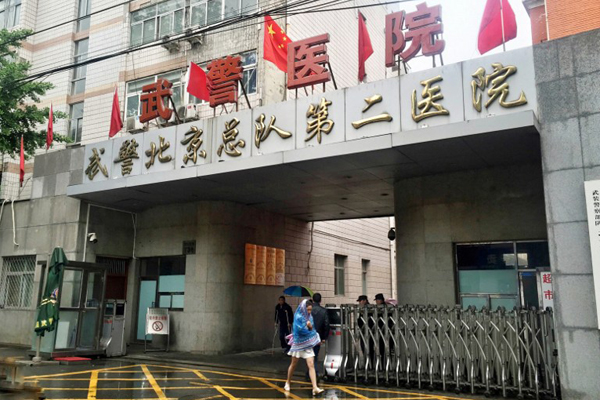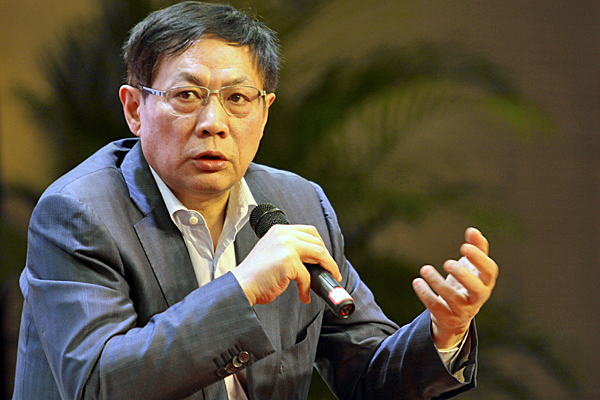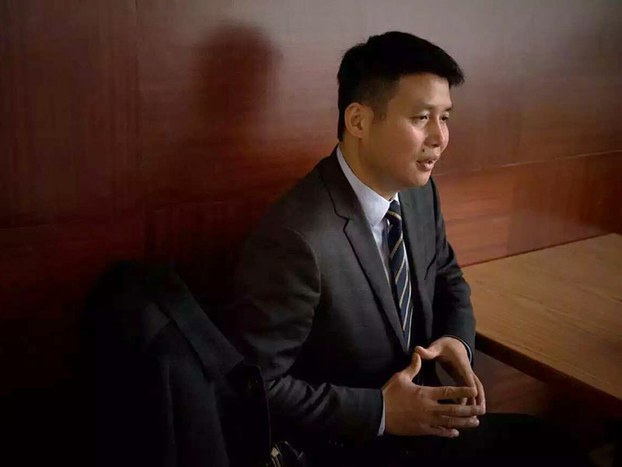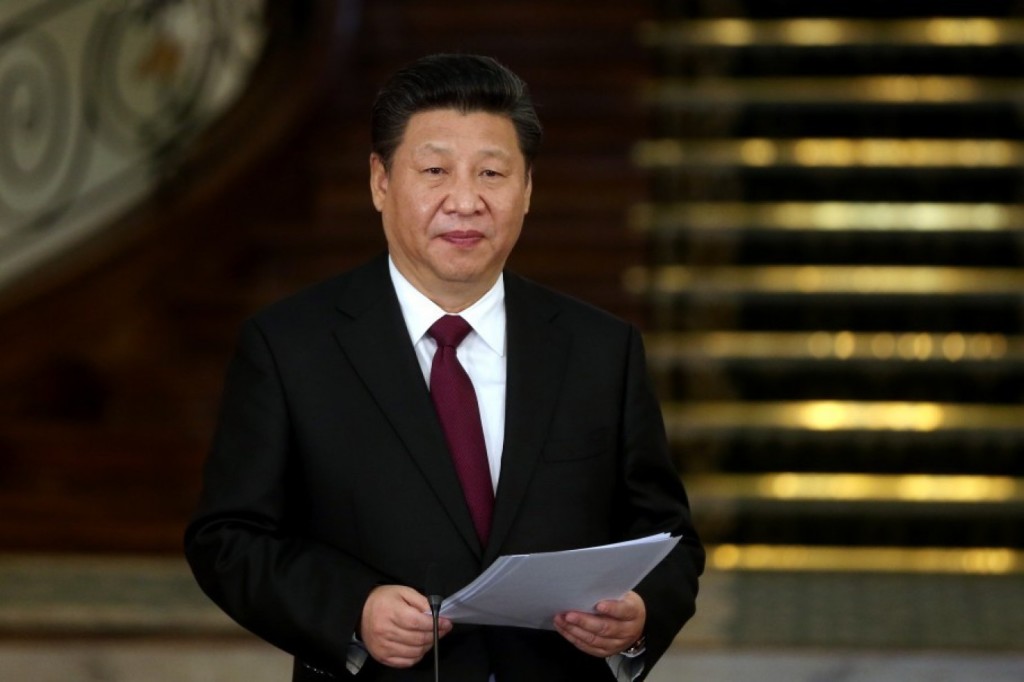
The Facebook logo is seen enlarged through glasses on a computer screen.
Facebook has won a rare trademark lawsuit in China over the use of a version of its name by a Chinese beverage maker. Continue reading

The Facebook logo is seen enlarged through glasses on a computer screen.
Facebook has won a rare trademark lawsuit in China over the use of a version of its name by a Chinese beverage maker. Continue reading
Facebook Scores Rare Legal Win in China已关闭评论
Posted in Headlines, Internet Freedom
Tagged censorship, court, Facebook, Great Firewall, Mark Zuckerberg, trademark

Eating a banana “seductively” has been deemed inappropriate content for the internet in China. Credit: YouTube
Eating a banana in an “erotic” manner while being broadcast on live-streams has been banned in China as part of the government’s attempts to crack down on “inappropriate” content on the internet.
Hosts of the live-streaming sites are now required to monitor all their output every minute of the day, but it is not clear how they will be able to enforce the ban.
Wearing stockings and suspenders during a live-stream is also now prohibited.
The move comes a month after the Ministry of Culture announced it was investigating several live-streaming sites, including Douyu, Panda.tv, YY, Zhanqi TV, and Huya, for allegedly hosting pornographic or violent content that “harms social morality”.
A recent survey revealed 30-40 percent of the subjects in live-streams are students, and 77 percent of the viewers were male users, CCTV News reported. According to the New Express Daily, 26 percent of the viewers are under 18, while 60 percent of those being broadcast are younger than 22.
The move has bemused many social media users, with some wondering how authorities decide what is “seductive”.
“How do they decide what’s provocative when eating a banana?” one person asked, according to the BBC. Another wondered: “Can male live-streamers still eat them?”
 Others suggested the people in live-streams would simply choose another fruit or vegetable. “They will all start eating cucumbers, and if that’s no good, yams,” one user said.
Others suggested the people in live-streams would simply choose another fruit or vegetable. “They will all start eating cucumbers, and if that’s no good, yams,” one user said.
China has been clamping down on internet freedoms under Xi Jinping, closing down social media accounts of government critics and targeting opponents who it claims peddle in “on-line rumours”.
Internet censors have also shut down the website of foreign media organisations, including the New York Times.
Last year, China’s government threatened to shut down Sina, one of the country’s most popular news websites unless it “improves censorship”, state media reported.

An armored personnel carrier is shown in flames near Tiananmen Square during unprecedented democracy protests that were met with a government crackdown that killed an unknown number of demonstrators, June 4, 1989. AFP
China’s Internet giant Baidu.com is blocking keyword searches linked to the June 4, 1989 Tiananmen Square protests as Beijing attempts to throttle discussion ahead the 27th anniversary of the bloody military crackdown on the pro-democracy demonstrations. Continue reading
As Tiananmen Anniversary Nears, June 4 Disappears from the China’s Web已关闭评论
Posted in Internet Freedom
Tagged Baidu, censorship, June 4

A woman leaves the military-run hospital where Chinese student Wei Zexi received treatment for cancer after consulting online results from Chinese search engine Baidu in Bejing, May 2, 2016.
China on Thursday banned the outsourcing of medical procedures by its hospitals following the death of a young man from cancer after he found a discredited treatment using the homegrown search engine Baidu, as the country’s powerful propaganda ministry banned any further media reports on the scandal. Continue reading
China Bans Further Reporting on Chain of Medical Businesses Amid Anger Over Man’s Death已关闭评论
Posted in Headlines, Internet Freedom, Press Freedom
Tagged Baidu, censorship, Wei Zexi

Chinese property tycoon and celebrity tweeter Ren Zhiqiang, a critic of President Xi Jinping’s campaign to tighten control over state-run media, delivers a speech to university students in Wuhan, central China’s Hubei province, Dec. 17, 2015.
The ruling Chinese Communist Party on Monday announced disciplinary action against freewheeling “big V” tweeter and property tycoon Ren Zhiqiang, for his attacks on online party propaganda. Continue reading
China Takes a Shot at ‘Cannon Ren’ Over Anti-Propaganda Tweets已关闭评论
Posted in Culture, Headlines, Internet Freedom
Tagged censorship, probation, propaganda, Ren Zhiqiang, Tweet, Weibo

Only five videos are displayed on Papi Jiang’s Youku channel, none of which work
One of China’s biggest internet stars Papi Jiang has promised to “correct” herself, following warnings from government officials. Continue reading
China internet star Papi Jiang promises ‘corrections’ after reprimand已关闭评论
Posted in Culture, Headlines, Internet Freedom
Tagged Blogger, censorship, comedian, cyberspace, internet stars, Jiang Yilei, Papi Jiang

Guangzhou human rights lawyer Ge Yongxi is shown in an undated file photo. Photo courtesy of fellow rights lawyers
Authorities in the southern Chinese province of Guangdong detained and questioned a prominent rights lawyer for several hours on Friday after he reposted a satirical image of China’s president, linking him to the Panama Papers. Continue reading
China Questions Rights Lawyer Who Retweeted Panama Papers Joke已关闭评论
Posted in Headlines, Human Rights Lawyer, Internet Freedom
Tagged censorship, Ge Yongxi, Guangdong, Panama Papers

Chinese President Xi Jinping speaks with media in a press conference with his Iranian counterpart Hassan Rouhani after their meeting at the Saadabad Palace in Tehran, Iran, Saturday, Jan. 23, 2016. (AP Photo/Ebrahim Noroozi)
Two weeks after China’s President toured state media offices and called for absolute loyalty from the press, a website with links to the government published an explosive letter asking him to resign “for the future of the country and the people.” Continue reading
Chinese website publishes, then pulls, explosive letter calling for President Xi’s resignation已关闭评论
Posted in Headlines, Internet Freedom
Tagged censorship, open letter, resignation, Xi Jinping